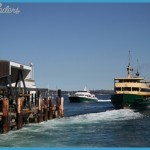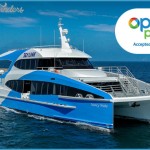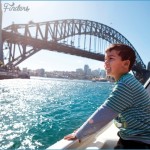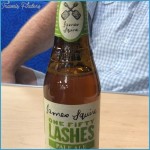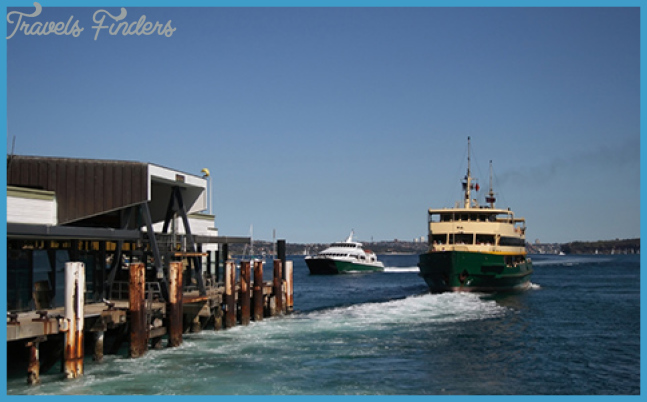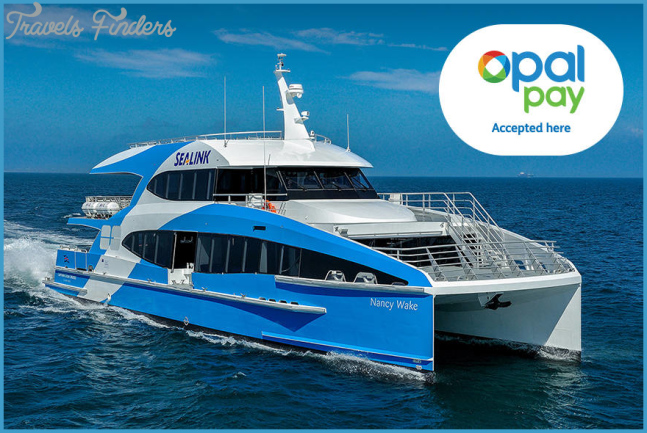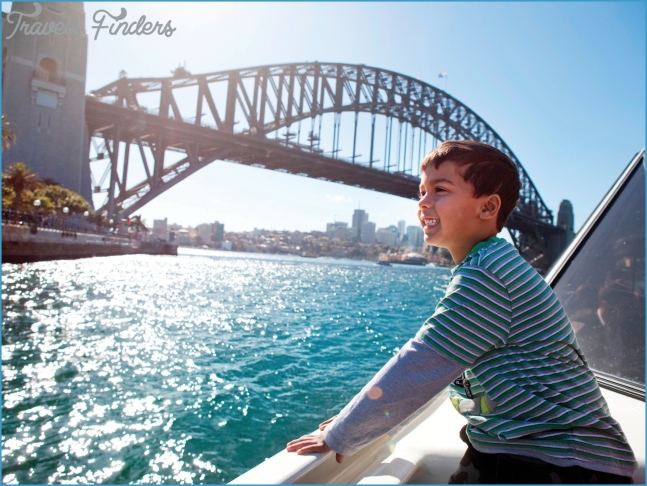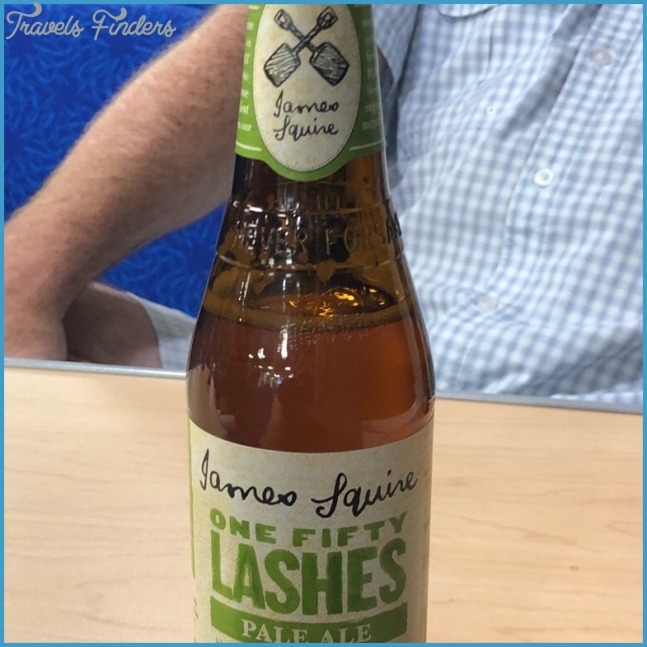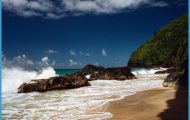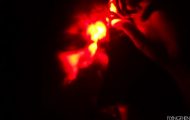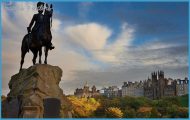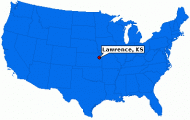If you’re in Sydney, then a ferry over to Manly makes a nice day out, with the views of Sydney Harbour alone being worth the ticket money. In Manly, when you’re done at the beach, drink at 4 Pines Brewery (29/43-45 East Esplanade, Manly, New South Wales 2095), where the Indian Summer Ale is especially good, before jumping on a ferry home. Fantastically, this ferry serves beers (mostly mainstream stuff, but they have a decent James Squires Pale Ale too) and also allows you to bring your own, so either grab some to-go brews at 4 Pines or pack a bag in preparation, so you can drink a cold one while enjoying the ride.
Drink on the Manly Ferry Photo Gallery
The Mussel Inn
THE PUB WORTHY OF NATIONAL ICON STATUS
In the middle of nowhere, somewhere in the faraway northwest of New Zealand’s South Island, around a two-hour drive west of Nelson, switch-backing perilously up then down Takaka Hill, passing almost nothing except trees, you’ll eventually, finally, hopefully spot a barrel-shaped sign that most wonderful, charming, and unique brewery-pubs in the world.
In the 1980s, Andrew and Jane Dixon were building houses out of wood for a living. Having built them for other people, they decided it was time to build their own home on land they owned in Onekaka. Andrew was also home-brewing beers, but prior to craft beer there were no cafés or bars in which customers could drink anything interesting, so, in 1992, they built The Mussel Inn in front of their house in order to serve great nonmainstream beers. Three years later, thanks to the success of the pub and positive responses to the homebrew, they added a small brewery. Today this is a locals’ pub that happens to attract many tourists; the locals help to make this pub what it is, some physically by building bits of it, others by helping to create its arms-open atmosphere.
The pub is essentially a one-room wooden hut—but it’s the greatest one-room wooden hut I’ve ever drunk in. It’s made from local macrocarpa wood. There’s an atmospheric and acoustics-friendly pitched room and a fireplace on one side; at weekends there’s a stage set up for live music; the bar is small and simple, with six beer taps and one for cider. Outside there are covered verandas and seating, while the rest of the beer garden is open and in the greenery—in fact, the gardens grow around, into, and with the pub.
The Dixons grow hops; there’s an orchard, feijoas, and lemons, plus a vegetable patch that supplies the kitchen. They are exceptionally eco-conscious at The Mussel Inn. They recycle glass bottles and any that can’t be re-used are turned into sand by a bottle-crusher and distributed around their land; any potential waste water from the brewing process irrigates the orchard; they shred cardboard boxes and put the shreddings in their “humanure” composting toilets; and they’ve also bought a machine to blow-mold plastic bottles, rather than having them blown in Auckland and freighted to the pub.
They brew all their own beers, ciders, and soft drinks, and all the food is homemade—it’s also very good (try the quiche to maximize the garden-grown veggies you eat). The brewery is most famous for Captain Cooker Manuka Beer. When Captain James Cook arrived on these distant islands, he brewed a beer with manuka honey to help fight off scurvy in his crew; he also released wild pigs into the country, which became known as Captain Cookers—hence the beer’s name and the pig on the beer’s logo. At the time Andrew started brewing, there were a couple of popular brown beers made by New Zealand’s larger breweries and drinkers would come in and ask for them. Andrew decided to give them something visually similar but very different in taste. The resulting Captain Cooker is ostensibly based on its namesake’s recipe and brewed with fresh manuka tips (it’s been analyzed by boffins and they’ve said the beer is far higher in antioxidants than regular beers).
Captain Cooker is a singular beer. It’s peppery, spicy, deeply herbal, dry, and almost savory, which the toast and cocoa of darker malts round out with some sweetness. It’s bitter, botanic, and idiosyncratic, and reveals more and more of itself as you go from glass to glass, though you’ll never quite manage to figure it out properly. You’ll also never forget it.
The Mussel Inn’s other brews include the English-tasting Pale Whale IPA and also Dark Horse, which has a deep, dry Stout bitterness. Golden Goose Lager is pleasingly simple, plus there are other ever-changing brews and a refrigerator filled with bottles, including some sour beers. Their Apple Roughy cider (made using their own apples) is zingy, tangy, and crunchy like a Granny Smith apple, plus their Feijoa “Cider” is brewed with the guava-like fruit that they grow themselves. It’s melony, limey, tropical, and grape-like—it’s really good. For drivers, there’s homemade lemonade and ginger beer.
The remote location, the people, the beer, the food, the live music, the gardens, the wooden buildings, and the eco-consciousness all combine in a remarkable way. The marvel of The Mussel Inn is that you get the feeling of going from the middle of nowhere to being now here and there’s a warm sense that you’ve arrived somewhere special, built by the hands of a few and the hearts of many, many more. It is a national and cultural icon of New Zealand. A legendary place. If ever a brewery deserved a UNESCO listing, then The Mussel Inn should receive it. I think it’s a Top 10 must-visit world beer destination
With its remote location, not many beer lovers make it to The Mussel Inn, but those who do will be treated to a beer experience they’ll remember for the rest of their lives.
The Lowdown
WHAT: The Mussel Inn
HOW: Open seven days a week (11am-late), but closed mid-July to mid-September (www.musselinn.co.nz).
WHERE: 1259 State Highway 60, Onekaka, Golden Bay 7182, New Zealand

